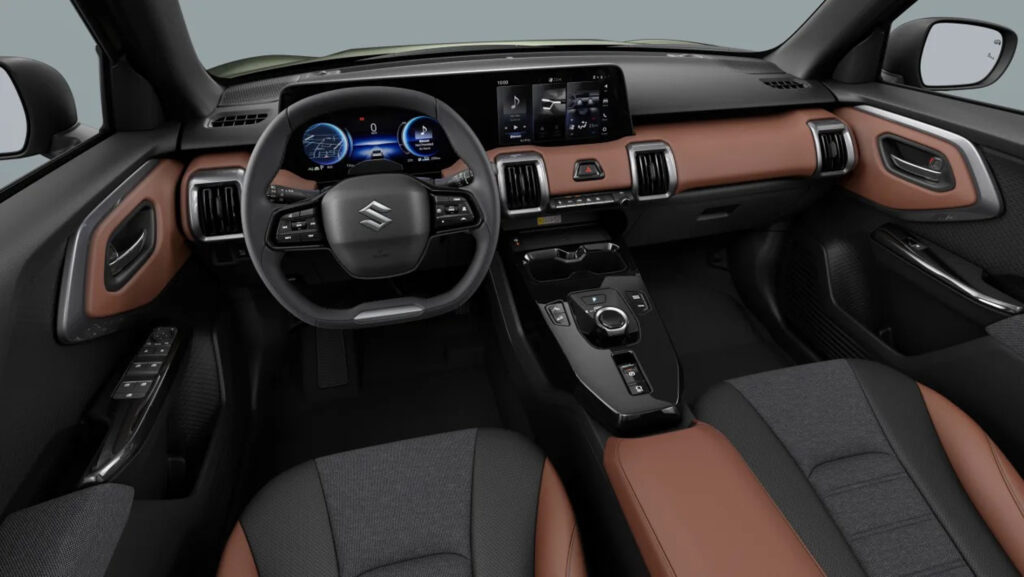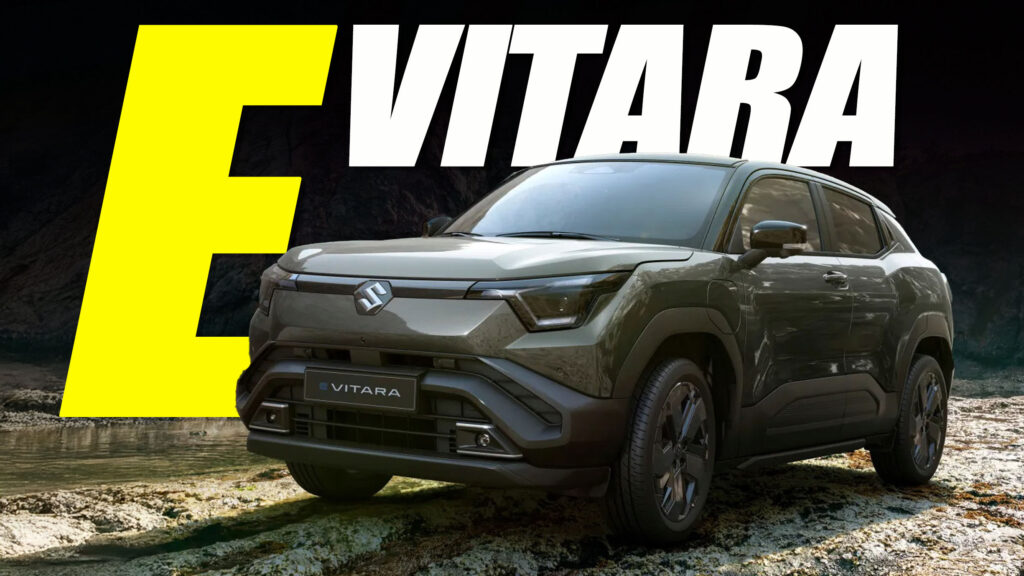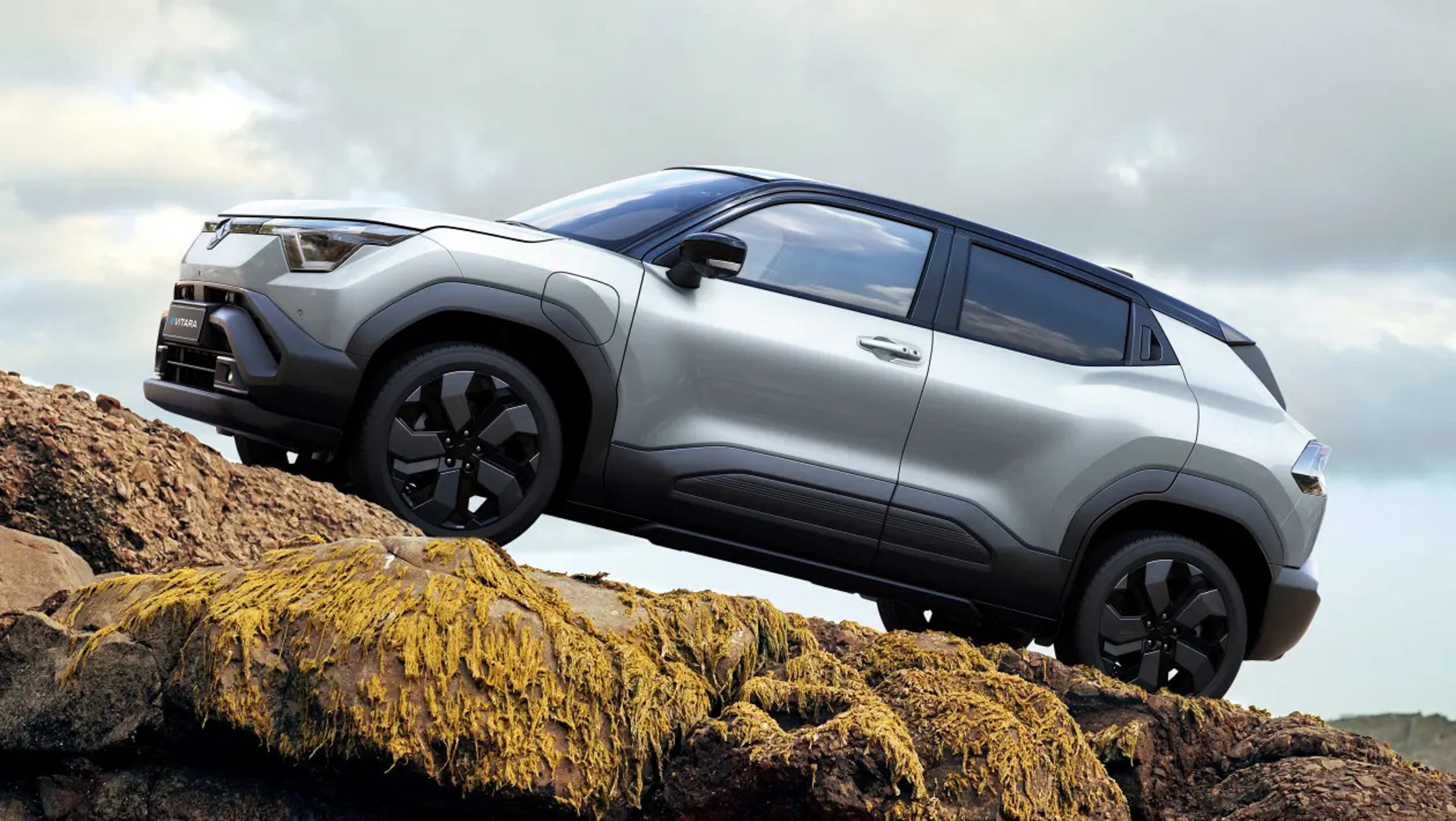- Suzuki has revealed the India-built eVitara, the firm’s first fully electric car, and the basis for a new Toyota bZ SUV.
- The front-wheel drive eVitara comes with a choice of 49 kWh and 61 kWh batteries and 142 hp or 172 hp motors.
- An all-wheel drive version of the eVitara increases power output to 181 hp with added rear motor.
Fifteen years after the Nissan Leaf made EVs a reality for buyers with real-world budgets, and just as many other automakers are scaling back their own battery-vehicle plans, Suzuki has finally unveiled its first electric car. The eVitara is built in India, but will be exported to other markets alongside a Toyota bZ-branded sister car that’s yet to debut.
Though it wears the Vitara name, the eVitara has very little in common with the automaker’s nine-year-old combustion-powered utility. The production version of last year’s eVX concept rides on Suzuki’s Heartect-e EV platform and shares the show car’s boxy wheelarches, slim grille and the kicked-up window line.
Related: Suzuki’s First Electric SUV Will Be Sold As A Toyota Too
At 4,275mm (168.3 inches) it’s also 100 mm (3.9 inches) longer than the existing Vitara and the 2,700 mm (106.3 inches) wheelbase is 200 mm (7.9 inches) bigger, so it should be much roomier for passengers. Base cars come with a 49 kWh battery and 142 hp (144 PS / 106 kW) motor driving the front wheels, but upgrading to the bigger 61 kWh battery bumps the pony count to 172 hp (174 PS / 128 kW) while maintaining torque at 140 lb-ft (190 Nm). No range figures have been released.
Going for the larger battery also unlocks the possibility of all-wheel drive, made possible by adding a 64 hp (65 PS / 48 kW) motor to the rear axle. The total system output only comes to 181 hp (184 PS /135 kW) but the 221 lb-ft (300 Nm) torque peak should make itself felt, and help offset a 4190-lbs (1,899 kg) curb weight that’s 434 lbs (197 kg) up on the entry-level 2WD model.

The interior looks surprisingly un-budget thanks to the fashionable slab of glass that covers two thirds of the upper dashboard and combines a digital instrument pack and center touchscreen. Suzuki says the cabin features “robust-looking coatings” (let’s hope they really are robust and don’t just look it) to reflect a “High-Tech and Adventure” theme.
And to help you in your adventuring quests Suzuki’s Allgrip-e system includes a Trail mode that uses the brakes to mimic the operation of a traditional limited slip differential. We’ll have to wait to see if the eVitara can outclimb and outcrawl the automaker’s Jimny. We don’t like its chances.
The eVitara enters production at Suzuki Motor Gujarat’s plant in India in spring 2025 and sales to Europe, India and Japan start in the summer. The same plant will also build Toyota’s version of the SUV, which it has yet to reveal, but was previewed by last year’s Urban SUV concept.















